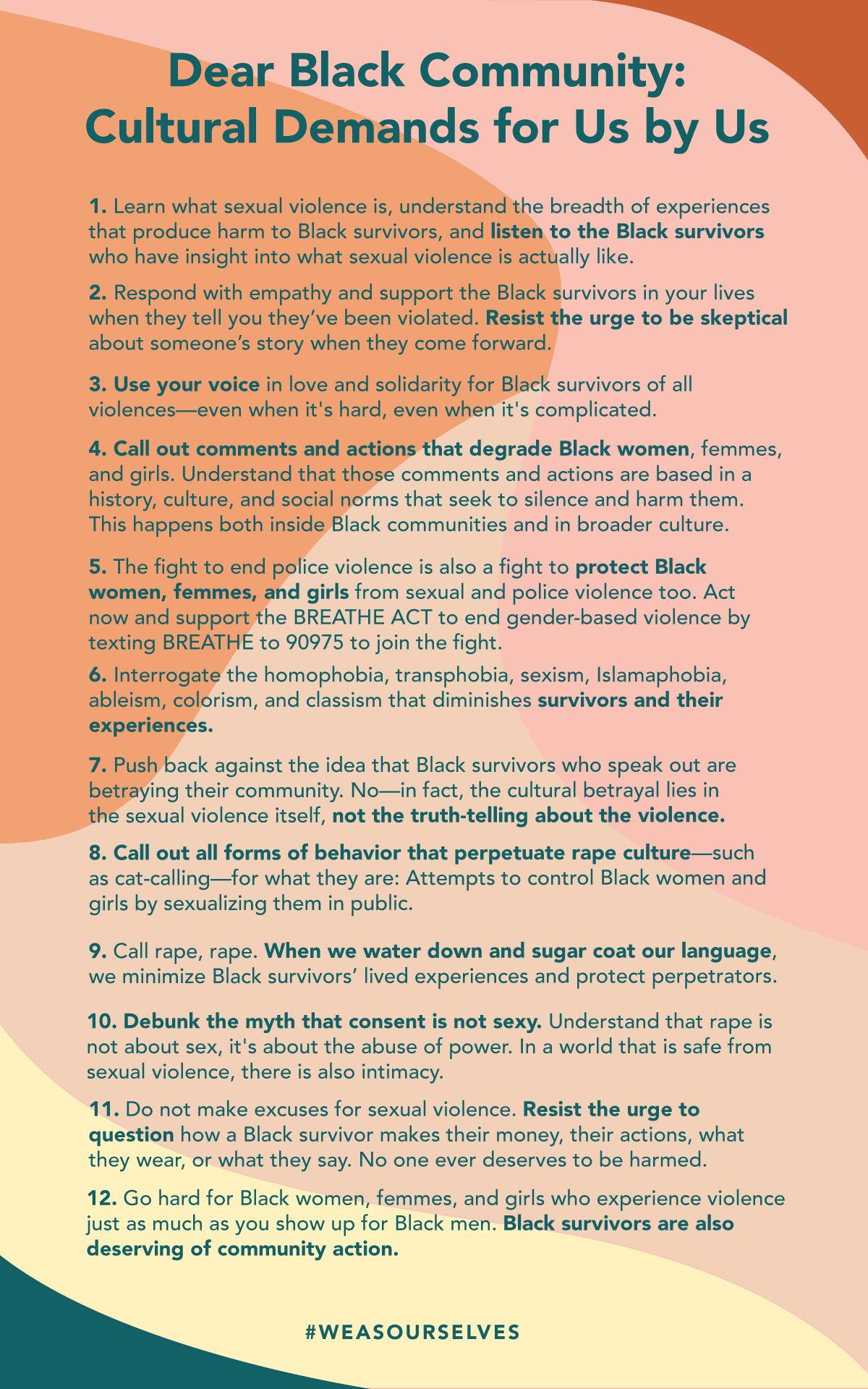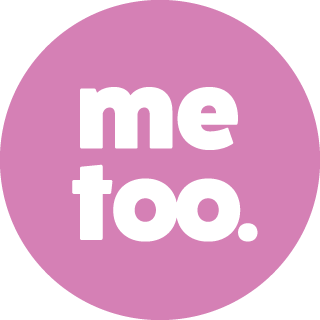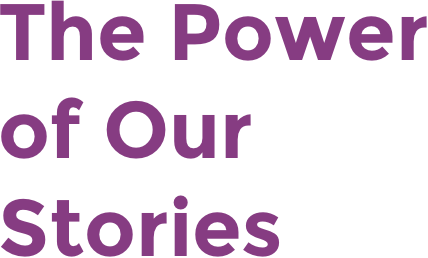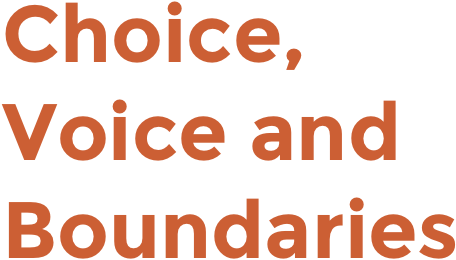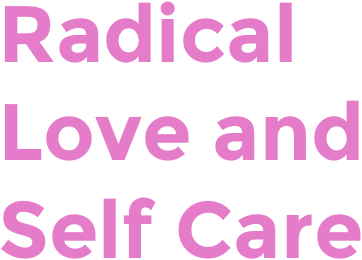Over the next few months, as we embark on the trial of R. Kelly, we know that high-profile moments like this one can and will bring with it the barriers and backlash that Black Survivors have faced time and time again.
We know the stories and the experiences of Black survivors may be dismissed. We know people will try to discredit and scrutinize them. We know people will evaluate these stories with a set of questions that shift responsibility from the accused to the survivor. And we know that when the alleged abusers are not only famous, but held up as pillars of the Black community, the tendency will be to sweep these allegations under the rug.
We can anticipate that the media will follow the tendency to center their reporting on the celebrity or high profile abuser rather than on the survivors and their stories; or they will not focus on Black survivors at all and we will be faced with silence and dismissal.
